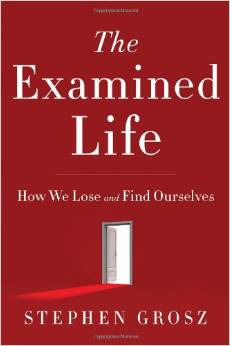Why humans do what they do, their strange behaviour and neurosis under examination. In its most simple, studied form. When a person decides their brain is not quite how they want it, one of the many things humans do is see a psychoanalyst. A relationship is born on the premise of doctor and patient, healing through words.
Stephen Grosz has had spent over 50,000 hours with patients which is a dedication of many years examining human lives. Each chapter in the book explores notions like why we might mourn the future and our inability to accept change, and Grosz explores these ideas through rewriting his patients stories. On the surface Grosz presents a human story, underneath are his theories as to why it is occurring.
This book is a superb look at the act of psychoanalysis, how it affects some people and the role of the psychoanalyst. As a reader it forces you to question your own behaviour and to reflect on how strangely programmed the human brain. So strange that some people simply stood around or picked up phone calls while the world trade centre towers were falling to the ground. This kind of odd behaviour Grosz links to a common theory in psychoanalysis. For example humans have a penchant for disliking change, so deeply intrinsic that most of us aren’t even aware that it often guides our behaviour in mysterious ways. We like what we know. 15 years an office without any dramas or qualms, we might choose that reality over the one with smoke and fire alarms.
Grosz is a gifted explainer. Reading his words is like eating warm chocolate fudge on a frosty night. The meaning of his stories slides down with moist ease, his voice is sure but not preachy. For the first time reading about the human psyche I felt close to it.
Why do humans have the capacity to love, spit, have affairs, deliberately forget, lie, hug, be generally wretched and sweet all in the same breath. How does our unconscious mind affect our conscious being. How do we know when our brain is working, and when it is not? This book is a fascinating look at the mythical workings of the mind.
